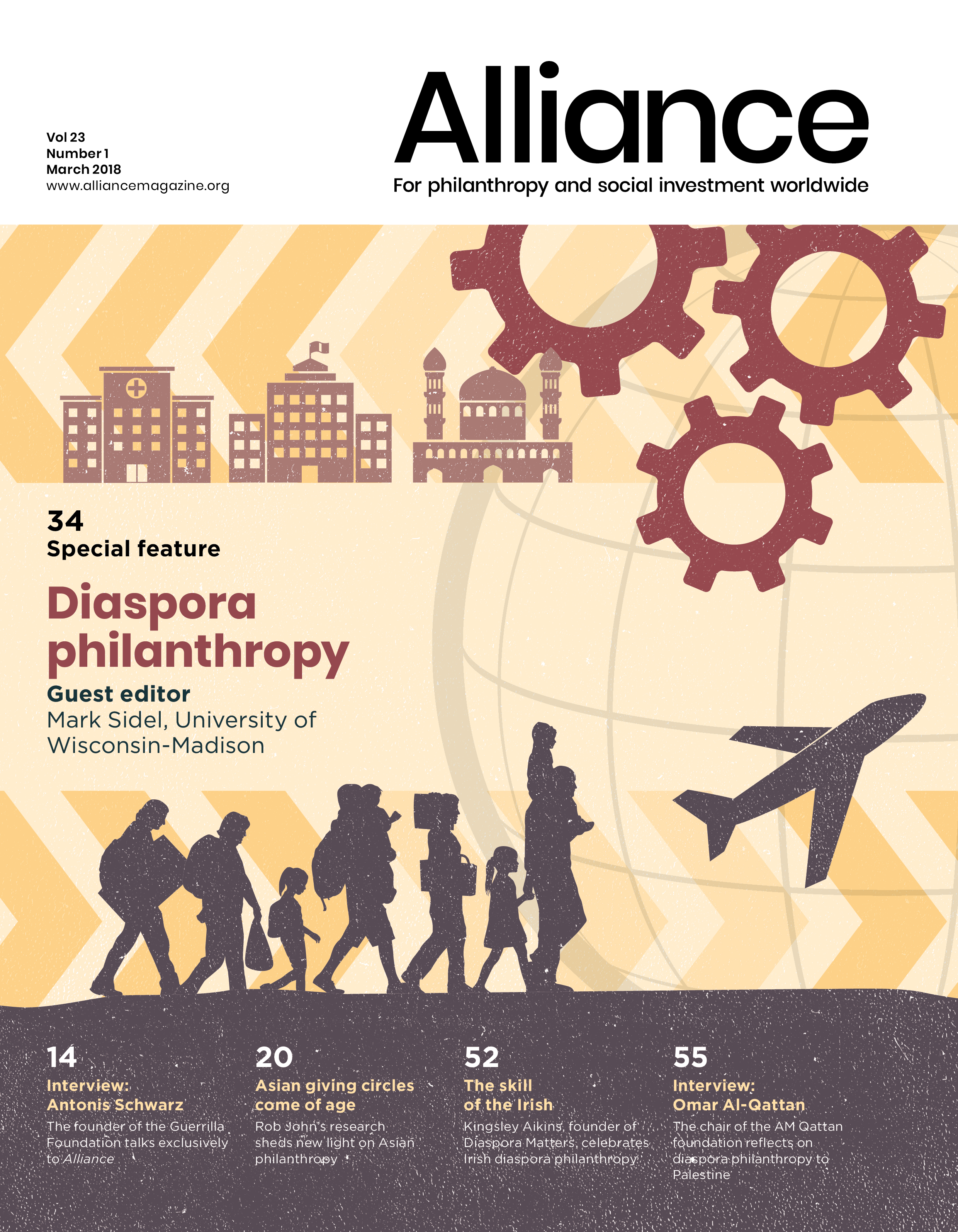Like any other country, India has a regulatory framework governing the operations of the non-profit organizations working in the country.
In addition to the limits those regulations prescribe, they sometimes impose unforeseen challenges on the space and operational freedom required for the non-profit sector’s smooth functioning.
As a result, such a scenario sometimes puts the state apparatus at loggerheads with NGOs.
Figures from India’s Ministry of External Affairs suggest that as many as 31 million Indians live overseas.
This massive Indian diaspora is pumping tens of billions of foreign exchange into the Indian economy.
Annual statistics provided by the Reserve Bank of India estimate remittance inflows from Indians working across the globe at $70.4 billion, $68.9 billion and $62.7 billion in 2014, 2015 and 2016 respectively.
Despite this, many organizations with limited resources find it increasingly hard to secure foreign funds.
Indian regulators demand that not-for-profit organizations have a Foreign Contribution Regulation Act (FCRA) licence in order to receive any foreign funding.
Apart from a few big names, not many NGOs get funding this way.
The situation is compounded by the fact that the FCRA licence of over 14,000 not-for-profit organizations has been revoked for alleged violation of the Act, while the FCRA licence of a further 11,319 has expired.
In addition, the Indian interior ministry has directed over 6,000 not-for-profit organizations to open accounts in banks and provide real-time specific access to security agencies. All these measures have shrunk the inward funding pipeline to the detriment of scores of small NGOs.
Based on my experience of setting up an environmental organisation in Kashmir, I would say that it wasn’t easy by any stretch of the imagination to get going. We operate against the backdrop of an active conflict in the densely militarised region of Kashmir claimed both by India and Pakistan.
Our every move and act would get scrutinized by the government bodies and even by the common masses, each suspecting the other of some underhand design in the quagmire of conflict.
The fact that a sizeable chunk of the Indian diaspora wants to contribute to various causes in India warrants a serious revisiting of such stringent and often irrational regulations. The diaspora itself could have an important part to play in this.
But we remained resolute and transparent in our mission of conservation and it paid dividends. Today, our field operations and awareness efforts are well received and reciprocated by all stakeholders of the region.
However, due to the lack of proper funding and not having the FCRA licence our operations and plans for expansion are undermined.
The fact that a sizeable chunk of the Indian diaspora wants to contribute to various causes in India warrants a serious revisiting of such stringent and often irrational regulations.
The diaspora itself could have an important part to play in this. It could offer more indirect support to those relatively small or lesser-known organizations working in sectors like education or the environment.
For instance, access could be granted for poor scholars to resources and journals, as not all state-run colleges in India, especially in rural areas, have access to academic research journals.
Neither the not-for-profit organizations, nor the diaspora can do away with the regulations governing their operations. However, smart planning could have a meaningful, visible and far-reaching impact on the ground.
They generally lack quality books, access to the latest material in their libraries and robust tech-driven knowledge resources. Diaspora philanthropists could explore ways of funding these by paying external suppliers.
Neither the not-for-profit organizations, nor the diaspora can do away with the regulations governing their operations. However, smart planning could have a meaningful, visible and far-reaching impact on the ground.
A diaspora willing and committed to seeing change for good must find the ways and means to reach the smaller players serving the underprivileged and marginalized in our society.
Bilal Ahmad Pandow is co-founder of South Asian Voluntary Association of Environmentalists in Kashmir.
Email ibilalhussain@gmail.com








Comments (0)